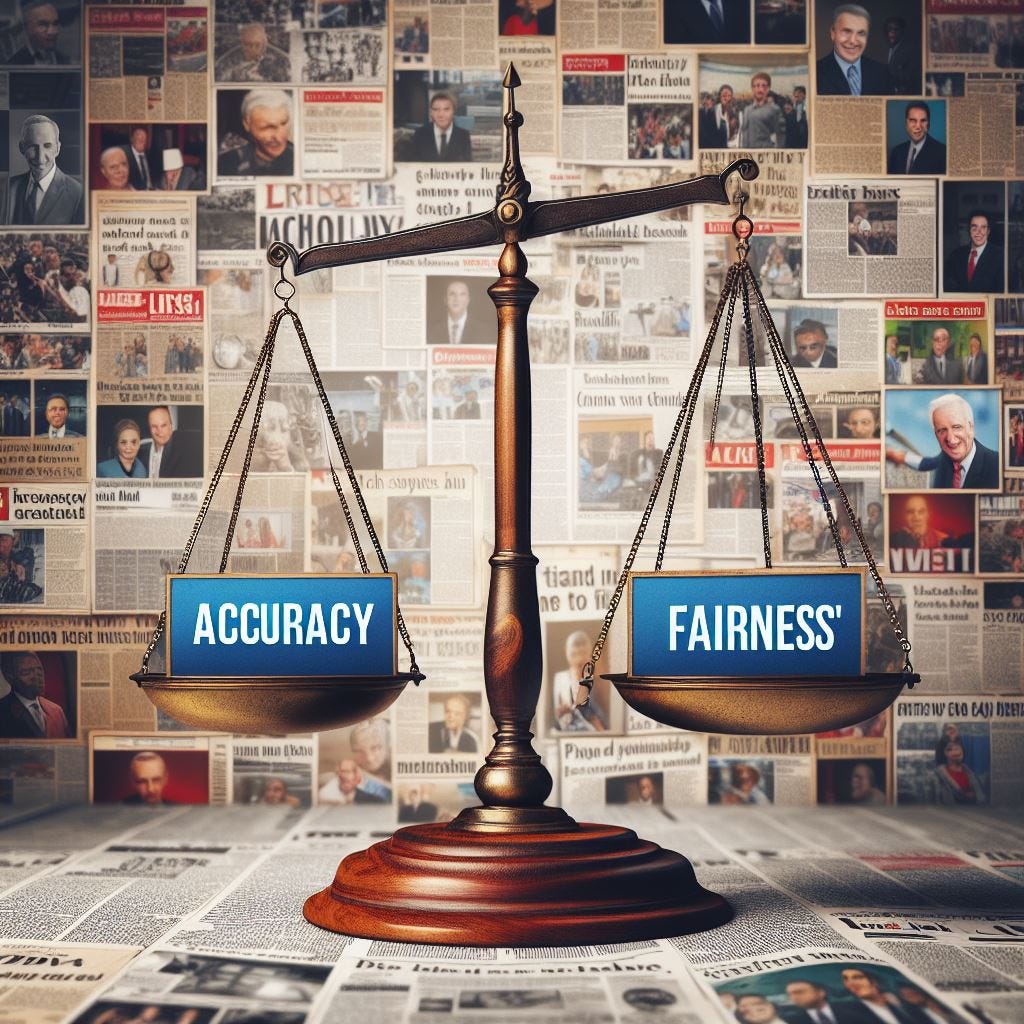Welcome to Second Rough Draft, a newsletter about journalism in our time, how it (often its business) is evolving, and the challenges it faces.
Unless you’re even older than I am (as I head off soon to my 45th college reunion), or are a truly hardcore news nerd, you may not have heard of the National News Council, an effort that lasted from 1973-84. This week I want to revisit the Council because I think it may suggest an initiative for our own time.
What it was
The Council was a foundation-funded effort to adjudicate the accuracy and fairness of press coverage in another moment of polarization around the news media. (Vice President Spiro Agnew, whose most prominent task in office was to repeatedly attack the press, and who condemned Administration critics as “nattering nabobs of negativism,” resigned in disgrace in 1973, but just months earlier he had been considered the likeliest Republican nominee in 1976.)
The Council had prominent adherents—it was initially led by the president of CBS News in the days it was known as the “Tiffany Network” because of its high quality—but failed because it tried to hold itself out as arbiter of truth rather than a voice of standards and best practice. Along the way, it was chaired by former chief judges of California’s and New York’s highest courts, and later by a former president of the American Society of Newspaper Editors. The New York Times, especially, rejected its quasi-judicial role from the start, and refused to cooperate with the “cases” considered by the Council. Over 11 years, the Council nevertheless heard and “decided” 242 such matters, with its conclusions reported by the wire services.
I was prompted to think of the Council by a suggestion at a recent public forum by Robert Post, one of the country’s leading First Amendment scholars and a former dean of Yale Law School, that we might be well served today by a panel of journalism school deans who could pass judgment on hard questions about press coverage. I’m inclined to agree.
What it could do
That doesn’t mean we should repeat the mistake of setting up some sort of shadow court. And the current deans of our journalism schools may think they are too busy. But if, for instance, a philanthropist or two was willing to fund a panel of leading former journalism deans and other authorities at some remove from newsrooms who would consider and opine on controversial stories and high-profile challenges to particular articles, I do think that could contribute to the restoration of trust in some quarters where it has eroded. Such a group, by the way, need not only consider problematic coverage— it might also in real time occasionally spotlight outstanding public service journalism, at the local as well as national levels.
The alternative—the status quo—just isn’t working very well. I understand why most news organizations that had them have discontinued their public editor roles: they constituted both an expense in constrained times and an irritant inside newsrooms where they were based.
But it is also true that, for instance, when the New York Times insists that it has canvassed the matter and that its coverage of sexual assault during the Hamas attacks of October 7 was just fine, very few people find that satisfying. Award panels are beset by increasing numbers of challenges to stories they have honored, or may be about to. Columnists like me can individually consider post-hoc critiques from dissidents like James Bennet or Uri Berliner, but we would, as an industry, benefit from a mechanism that was proactive, and thus quicker, as well as more broad-based.
Public trust in the press as an institution has clearly fallen. And all of this is true in a world where Donald Trump remains, for the moment, a private citizen, if a loud and cranky one. Next year could easily be much worse.
How it might work
A revived National News Council, consisting of a panel of broadly distinguished, deeply experienced people, might offer occasional public commentary on pieces of journalism in a manner that commanded respect and attention. For that to happen, the panel would need to reflect experience in print, digital, audio and video, in national and local media, with diversity across gender and race, but also geography, population density and perceived ideology.
Rather than conducting inquiries that mirror those undertaken by courts, I would suggest such a group behave as commentators do, delving into publicly-available materials, and soliciting comments from interested parties (both news organizations and the people and institutions they cover), as well perhaps from the public at large. It could establish its own agenda, rather than solely waiting for complaints, and would not need to consider every complaint it received. Transparency in all of this, of course, would be critical to building and maintaining trust in such an enterprise.
I do not think I am naive in this, and I certainly do not offer a new National News Council as a panacea. I acknowledge that its influence, if any, would likely be greater with those elites inclined to take journalism seriously, and less with those most susceptible to conspiracy theories and disinformation. But even if such an entity only did something to unify the judgment of reasonable people in a moment when so many are behaving unreasonably, I think that could mark a step forward. Such a Council deserves consideration, and perhaps another try.




Great idea!
Great idea. When do we start?